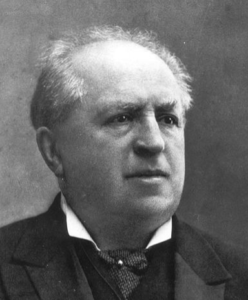
Here we go again: my college friend Charlotte and I, Ms. Blue and Ms. Red, discuss how to improve government-subsidized healthcare. Is anyone on Capitol Hill listening? Charlotte goes first this time.
Charlotte: You and I wound our way through a couple of discussions that brought us to a shared conclusion that Americans should have access to affordable medical insurance and health care. Now we are considering our differences of opinion on the role of government; should federal and state funds be used to provide health care and subsidize insurance plans? Is that a proper function of government? I say yes.
You said in an earlier discussion that many governors resisted Medicaid expansion because they couldn’t figure out how to pay for it. A recent Vox article shows how Medicaid expansion has actually worked better than anyone expected it to. Even Republican governors were vocal in their protest against the failed Republican plan to decrease that program.
Jim Wallis of Sojourners reminds us that “a budget is a moral document.” How our government leaders propose to spend our pooled citizen resources demonstrates their core values. The current budget Blueprint and the proposals in the failed ACHA display efforts to increase the advantages of the already advantaged and compromise the lives of the already vulnerable. I say such inequitable use of our common funds is inherently immoral.
A recent op-ed by Paul Krugman says building on Obamacare and improving it doesn’t have to be that complicated. He gives several good suggestions, as do Sarah Kliff and Ezra Klein in the Vox article. I think you and your Republican friends can make a big difference here by speaking out for reform and insisting the Republican leadership collaborate with their Democrat colleagues. It’s high time for some bipartisan cooperation. Letting the current system implode when it can be tweaked and improved is ludicrous. And again – immoral.
State and Federal governments will be able to figure out how to pay for these kinds of crucial services when they take their responsibilities seriously to put people over profits. “Promoting the common welfare” is not only a Constitutional mandate; it is also the moral and ethical obligation of government.
One other thing on my mind: in an earlier conversation, you pondered why health costs in America are so high. I’m not smart enough to understand all the complex reasons, but my default response to problems like that is: “Follow the money.” The medical industrial machine in this country wields immense power. I found this quote in the Vox analysis:
“Regulating health care prices was never a serious part of the Affordable Care Act debate. The Obama administration made a conscientious decision, at the start of its health care effort, to get all major industry groups to stand behind the law — or at least not work against it. Regulating health care prices would have meant that hospitals, doctors, and pharmaceutical companies would all earn less. The idea was a nonstarter…”
It was a “non-starter” because of the out-of-proportion weight lobbyists hold in our political conversations.
Did you know that in America, 9 out of the top 10 highest paid professionals are doctors? American orthopedic surgeons earn three times what their counterparts in France will earn in a year. Of course this is complex as well: education and insurance are more expensive here than in other countries. But when we look at the costs involved with paying our doctors exorbitant salaries; the costs of our hospital services, especially in light of some of the over the top salaries of too many CEO’s; the costs of our medications, especially in light of some of the highly publicized price gouging by pharmaceutical companies (plus the bombardment of advertising. Why the heck should a pharmaceutical company be advertising anyway!?) … This is just a beginning. Reining in the medical industry is no small challenge. The money-is-power principle will continue to hold sway over our health care system until enough wise, courageous politicians finally step up and confront this problem.
But I don’t see this confrontation coming from the current Republican leadership in Congress. From what I can tell, Republicans are all about increasing the advantages of the already wealthy. If regulation of health care prices was too big a battle for the Democrats, then I’m thinking the Republicans – in their disdain for regulations in general – will not engage this fight either.
Here is an excellent example reminding us that “regulations” are actually “protections” against corporate abuses of their customers and the general public. I know you have taken issue with my position on this before. I would be interested to hear your critique of regulations and restrictions appropriate to the health care industry.
In our last discussion, you insisted that governments should be “impartial” – that is, “government should not favor either rich or poor, but protect both.” Isn’t it the purpose of regulations to work towards this goal?
Okay, your turn.
* * * * * * * * * * * *
Janie: I appreciated the Vox article—it was reasonably balanced and somewhat fair, and a clear exposition of where folks on the center left stand, so that’s useful to know. I’m sure the ACA can be improved, but can’t intelligently address how because a) the thing is over 2000 pages long, with ten times that many pages in regulations already, and 2) I’m not at all sure it’s the best option for the most people. In fact I’m convinced it isn’t. Here’s a quick summary of the main problems with it: http://www.dailywire.com/news/12146/11-biggest-problems-obamacare-aaron-bandler
Like you, I can’t track the ins and outs of why medical care is so expensive now. I do know one thing: it was simpler and cheaper before the government got involved with Medicare and Medicaid and regulation of the insurance agency. Don’t get me wrong: I’m not against regulation per se, and I’m not opposed to all government aid for the indigent and the elderly. But remember how my family was able to pay for life-saving medical treatment for me, including an entire month in the hospital, on the income of a humble credit-union employee (my mother). She got her insurance (Blue Cross) through her employer, which of course was a big help, but it was also cheap at the time. That’s mainly because it was market-based; insurance companies ran the actuarial tables and balanced the risks and figured out how much they could charge to cover expenses and make a profit, which is what business is all about.
That’s not to say insurers are the good guys. When business gets involved with government, market factors go by the wayside. The main reason why consumers can’t purchase insurance across state lines, which would force insurance companies to compete for their business, is because the insurance industry wants to maximize profits without competition. The big players influenced laws in their favor, as they always have and always will. They don’t just influence Republicans; they also influence Democrats. No party is immune from this, and no law will eliminate it. The rich and the powerful will always find a way around the law and regulations; that’s one reason why they got to rich and powerful. The only real safeguard against undue influence is a free market (which I’ll admit is never really free, but nothing’s perfect).
The ACA attempts to blend private insurance with heavy government subsidies and mandates, and it wasn’t so great. The AHCA tried to build on that platform, only by eliminating the mandates and a few free-market gestures, and it might have been even worse. But since I don’t like the platform I can’t address how to improve the ACA in detail. The healthcare reform I’d really like to see is very different. I know I’ve mentioned elements of it, but here’s the capsule version, for future reference:
Most citizens responsible for their own basic care and maintenance. This used to be taken for granted: you paid for your doctor visits and routine medications out-of-pocket. Is that too expensive for most of us now? No. I realize that with medical advances come higher costs, more expensive equipment and drugs, etc. Still, the market keeps those prices down better than price controls do—just think how cheap smartphones have become in a mere ten years! Competition works for doctors, too: at this moment, in Springfield, Missouri, there are at least ten fee-for-service and medical concierge centers that charge anywhere from $50 to $150 per month for a menu of routine health services and 24-hour consultation. Even surgeons are banding together to establish cash-only surgical centers. With paperwork cut to a bare minimum and no time wasted on checkboxes, they cover their costs and make a profit.
Affordable catastrophic health insurance available in an open market, for emergencies, surgeries, and life-threatening illnesses like cancer. That’s what Blue Cross was for my parents—my dad also spent weeks in the hospital due to back issues, but they could afford it. Nobody was turned out on the street to die or to suffer without treatment, even before Medicaid!
Religious organizations encouraged to open and operate their own health ministries for the poor. A lot of Christian, Jewish, and probably Muslim organizations are doing this already, and I’ll admit I don’t have a clear idea how governments could “encourage” more of it. But this is the kind of personal, hands-on care that homeless, rootless, and hopeless people need most.
A government safety net, such as a scaled-down Medicaid, for the truly needy.
Health-savings accounts for each citizen, to which the federal government contributes a small amount during the citizen’s working years, to be increased after retirement age. Perhaps Medicare could be incorporated with something like this.
Having said all that, I recognize that once we’ve started down the road of government control of health care, it’s very difficult to turn back. That’s why Canadians and citizens of the UK and other countries with single-payer programs don’t want to give it up: they can’t see the alternatives and can only picture themselves adrift without any support at all. Yet the single-payer model has its own problems, namely an expanding bureaucracy, rationing, and lowering standards as it’s less able to pay for itself. Besides, single-payer plans always develop a two-tiered system with the best care going to those who can pay for it and everybody else getting the leftovers. It can still work okay in a smallish country with a relatively stable population, but the U.S. is a big country with an extremely dynamic population, including legal and illegal immigrants. For us, I believe the more options, the better.
A couple of postscripts: First, could we refrain from ascribing motives to people we disagree with, such as, “From what I can tell, the Republicans are all about increasing the advantages of the already wealthy”? No doubt some of them are. No doubt some Democrats are as well. But Republicans are people too—even the politicians!—and are, like me, sincerely concerned about making health care affordable but have a different opinion about what works best.
Second, you say, “Reining in the medical industry is no small challenge. The money-is-power principle will continue to hold sway over our health care system until enough wise, courageous politicians finally step up and confront this problem.” I’d say the money-is-power principle will always hold sway in government, because government is about power, and something will always influence power. In our system it’s money because we don’t have aristocracy. This isn’t cynicism; it’s realism. The genius of our founding fathers was in assigning legitimate powers to the federal government and leaving the rest to local (state) governments and individual citizens. It’s not perfect, because people aren’t perfect, but it spreads the power around so no single entity has too much of it.
* * * * * * * * * * *
Charlotte: You’ve talked about your childhood illness before and the good care you got because of your family’s coverage by Blue Cross. I’m so glad! Above you claim that this employer-provided insurance was affordable mainly because it was market-based. Maybe that was a factor. But according to the history of Blue Cross, the primary reasons your coverage was inexpensive were because it was subsidized by non-profit hospitals and because it was offered as a community service.
For more than forty years, virtually all BCBS plans were organized under federal law as 501(c)(4) “social welfare” organizations which were “engaged in promoting the common good and general welfare of the people of the community. Such an organization is operated primarily for the purpose of bringing about “civil betterments and social improvements.”
501 (c) (4) corporations were non-profit and tax exempt.
I mention this because you seem to put quite a bit of faith in the free market. You say: “The only real safeguard against undue influence is a free market…” I strongly disagree. Governmental protections are safeguards put in place because businesses and corporations demonstrate repeatedly that they will take advantage of people every chance they get.
This one anecdotal experience with Blue Cross worked for your family in a simpler time. Much has changed in our society since then so that today charities and non-profit associations must find help and partnership with local, state and federal government. We cannot go back to a simpler time; it doesn’t exist. We must move forward.
For me, single payer is a very logical, tried and true approach for moving forward. In most every Western nation, single payer insurance and governmental health care has worked and worked very well.
Jerry and I spent several years in the Navy where all our medical care was provided by the federal government. It was excellent care offered by conscientious and competent people. In my opinion, Medicare insurance for all and public clinics would be a huge step forward.
To your request that I not ascribe motives to people I disagree with: I try very hard not to lump people into categories. I know full well Conservatives are not a monolithic group just as Liberals are not. In my opinion, you are the poster child for the classic Compassionate Conservative and I know there are many other good people like you out there.
I disagree that I was “ascribing motives” to the Republicans in the White House and Congress. Rather I will argue that I am judging them by their actions. Here’s my edited sentence. I can’t back down on my opinion any farther than this:
“… the current Republican leadership in Congress. From what I can tell, these Republicans are all about increasing the advantages of the already wealthy…”
So basically, you don’t trust government and I don’t trust the free market. You think the ACA is not worth fixing and I think it is. Looks like we are at an impasse in this discussion.
I asked Jerry to read this before I sent it to you. I think he makes an important point:
The problem for both of you, as I see it, is that you are thinking in either/or categories. And both of you are right: Janie doesn’t trust government because government too often is corrupt and inefficient, and you don’t trust markets because markets too often are corrupt and greedy. Both opinions are well-founded.
What is needed is democratic tension, not ideology. How can we work together to solve problems, realizing that any solutions necessarily are imperfect, provisional and in need of constant revision? The willingness to solve problems with creativity and compromise is what’s missing in the current political climate where everything is polarized by ideology. At some point, if our politicians want really to accomplish something, they have to say, to hell with ideology, let’s figure out something that might work. And let’s fix it when it doesn’t work the way we thought it would.
You and I disagree on several fundamental issues, Janie, but we do agree that there is too much polarization in our current public conversations. That’s what started us on this shared blog quest in the first place. I truly am good with “democratic tension.” Here is another brilliance of our Founders: united but independent states, three branches of government, numerous and various representatives. It’s our broad diversity that makes us stronger and wiser.
None of us has all the right answers; we need each other. But we need to listen to each other better, respect each other more and collaborate with each other in good faith. I feel helpless to influence our tone-deaf politicians and this outraged public. Maybe what you and I are trying to do doesn’t really matter. But then again, maybe it does.
* * * * * * * * * * *
Janie: That’s a good way to wrap this one up. I appreciate Jerry’s point of view: both of us have good reasons to distrust both governments and free markets, since every human institution is prone to corruption. That’s why I don’t totally trust any human institution, including the free market, and believe it’s a good idea to spread power around so nobody has too much of it. I understand Jerry’s to hell with ideology, too, if what we mean by “ideology” is a certain set of core principles each side identifies with and won’t budge on. Still, everyone is driven by ideology to a point; that is, we all ascribe to certain broad principles that we believe to be true, either from experience or prior commitment (or both).
To sum up my end, I’d like to quote from an article in National Review: Repeal and Piecemeal: a Better Obamacare Strategy. It’s mostly about policy and process, but I’m in agreement with the writer’s general idea about what public health care should look like (emphasis in the original):
Modesty means recognizing that nobody in Washington is smart enough to design a better health-insurance system on his own. The best system is one that is relatively simple, doesn’t try to do everything at once, and leaves the largest possible amount of power in the hands of individual consumers, and the power of experimentation in the hands of all 50 states. A system that is designed to solve all today’s problems for all time—even if it succeeded—would cast in stone an inability to respond to tomorrow’s problems until they reach crisis proportions.
Whatever happens, I’ll live with it. But it’s vitally important that we keep talking to each other, in websites and on debate stages and over cups of coffee. We are not enemies, but friends. Thanks for being my friend!
Charlotte: My pleasure, dear Janie. Our think our friendship has grown even deeper through these conversations.
So your Right leaning National Review and my Left leaning husband both agree: Let’s figure out what works and then keep improving as we go along. (By the way, my friends on the Left would benefit from reading this analysis by Dan McLaughlin. It’s calm and well reasoned and helps us understand our friends on the Right a little better.)
I think “we the people” need to lead the way and remind our so-called leaders how to sit down together, talk and listen to each other and actually solve some problems; our politicians seem to have forgotten how.
What’s next? I wonder if any of our readers have a topic they might want us to explore.








 In church on Easter Sunday. The sermon is about life. But more specifically, life in the resurrected body.
In church on Easter Sunday. The sermon is about life. But more specifically, life in the resurrected body.









